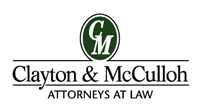
Ready or Not, Here They Come
Legal Challenges and Changes for 2017 and Beyond
Published December 2017
Though laws and legal rulings do not inspire songs and poems, they may still have quite an impact on daily life. As always, 2017 saw new requirements introduced, which will necessitate changes in the way many associations do business. Some of the major impacts and ongoing challenges are discussed below.
 New Board Member Term-Limit Law has Significant Impact for Florida Condominium Associations
New Board Member Term-Limit Law has Significant Impact for Florida Condominium Associations
By Nicole R. Kurtz, Esquire
Among the major changes made in 2017 to Florida’s condominium association laws is a restriction mandating a maximum term limit for some condominium association board members. While the law does not affect term limits of condominium association directors who serve terms of one year and term limits of directors who serve on homeowners association boards of directors, it does mark a significant departure from past policies imposed upon most condominium associations with respect to directors who serve terms of two years.
Before the 2017 legislative session, the Condominium Act permitted condominium association board members to serve two-year terms if they were permitted by the association’s bylaws or articles of incorporation. The newly codified law from the 2017 session further clarifies such allowance by providing that directors who serve for two-year terms are limited to serving a maximum of four consecutive two-year terms.
The new law also provides exemptions to this maximum term limit, including in the event an otherwise term-limited candidate is approved to serve an additional term by an affirmative vote of two-thirds of the total voting interests of the association, or in the event that there are not enough eligible candidates to fill a vacancy on the board at the time of the vacancy.
The Legislature does not appear to have intended for the new term-limit law to apply retroactively. Therefore, board members who have historically served consecutive two-year terms need not be immediately concerned as to their eligibility to run for board seats. Addit-ionally, as previously stated, those condominium associations whose directors only serve one-year terms are unaffected by the new law.
For the affected condominium associations, the new law may cause some serious concerns. Some board members who have served for an extended number of years play vital roles as experienced providers of steady leadership. They are uniquely aware of all of the administrative and operational details of a community, including its finances and long-term maintenance and construction issues.
However, the intentions behind the new law to generate new leadership for condominium associations are worthwhile, as newly minted board members often bring different perspectives and skills to bear for associations that have not updated their policies and practices for years. The term limits also help to curtail opportunities for unscrupulous board members to develop schemes over the course of years that put their own interests ahead of those of the community.

Undoubtedly, the new board member term-limit law for Florida condominium associations will have a significant impact on many condominium communities throughout the state. Condominium associations would be well advised to consult with highly experienced legal counsel regarding the ramifications of the new law, how it may affect any term-limited candidates, and potential options to resolve any concerns.
Nicole R. Kurtz is an attorney with the South Florida law firm Siegfried, Rivera, Hyman, Lerner, De La Torre, Mars & Sobel P.A. who focuses on community association law and is based at the firm’s Coral Gables office. The law firm represents more than 800 Florida associations, and it also maintains offices in Broward and Palm Beach counties. www.srhl-law.com, www.FloridaHOALawyerBlog.com, (305) 442-3334.
 Board Member Recalls
Board Member Recalls
By Barbara Stage, Esquire
Sunbrook Condominium Association, Inc. v. Unit Owners Voting for Recall, DBPR Arb. Case No. 2017-03-8121, September 1, 2017
Recently, our firm had the experience of representing clients in the first recall arbitration after HB 1237 revised Fla. Stat. 718.112(2)(j), governing recalls. The Department of Business and Professional Regulation (“DBPR”) issued an order requiring an answer and advised, pursuant to the Florida Administrative Code (“FAC”), the recalled board members remain in office until the arbitration was ruled upon. Our office filed a motion for clarification asking the DBPR to explain how it was reconciling the revised statute, which stated the recall was effective immediately, with the FAC.
Unfortunately, the July 1, 2017, revisions to the recall statutes conflict with Florida Administrative Code 61B-23.0028(3) and, on its face, with the statute itself. The revised statute requires recalled board members to step down immediately and to file a petition themselves if they wish to challenge the recall. “Immediately” is not defined in the statute, so there is confusion if this is immediately upon service of the recall or at the recall meeting the association is still required to hold within five days. Adding to the confusion is the requirement to hold the recall meeting if the recall is effective immediately. While the revised statute prohibits the association from filing for arbitration in one section, it appears to require the association to file a petition in other sections.
Since the DBPR operates under the Florida Administrative Code, DBPR declined jurisdiction to hear the case. Even though lawyers are taught in law school that the statutes overrule the FAC, DBPR explained an arbitrator “lacks jurisdiction” to declare the FAC is invalid. It was explained that it will be approximately six months before DBPR updates the FAC.
The next step would be to file a state court action for declaratory relief to have a judge rule the FAC is invalid and certify the recall or to challenge the FAC and DBPR in an administrative hearing before the Department of Administrative Hearings. Another option is to file for emergency injunctive relief. While we are fully prepared to do so, there is an election coming up in a couple of months and the issue would be moot.
Until the FAC is revised, homeowners are left with a recall statute, which is completely ineffective if the recalled board members refuse to recognize the recall is “effective immediately” and step down. Their only option is to proceed under the old rules, which align with the statute prior to revisions.

After working with the Office of Regional Counsel as an Assistant Regional Counsel, Attorney Stage recognized the need for attorneys dedicated to protecting the rights of homeowners who live in communities with little or no regulation by state agencies. Recognizing few homeowners can afford to litigate their disputes with associations, Attorney Stage made the decision to represent associations as an opportunity to provide education to board members about ways to operate and manage an association without creating unnecessary disputes and costly litigation. Attorney Stage can be reached at info@stagelaw.com or 844-(844) FLA-HOAS.
 Objection! Enacting Board Rules and Regulations
Objection! Enacting Board Rules and Regulations
By Neal McCulloh, Esquire
It is true that after the required notice, boards can generally enact rules and regulations via a board vote at a duly called board meeting. However, that does not mean such rules and regulations will be valid, binding, effective, and enforceable. Determining the validity, effectiveness, and enforceability of board adopted rules and regulations depends on various factors. Moreover, such rules and regulations may have significant limitations.
Unlike provisions within an association’s declaration, which generally can be, at least to a degree, unreasonable and still be enforceable, board adopted rules and regulations must be reasonable to be enforceable. As such, they can always be challenged as being unreasonable.
Given the above, board adopted rules and regulations have a higher likelihood of being challenged and a greater chance of being found invalid, ineffective, and/or unenforceable than restrictions found in the declaration. Please understand, to be enforceable, such rules and regulations cannot conflict with the law or a superior document, including the association’s declaration, articles of incorporation, and bylaws.
Because of the above limitations, if your association is considering enacting board rules and regulations, you may first want to evaluate, with counsel, whether such rules and regulations would be enforceable or whether they need to be enacted by an amendment to the declaration. Even if the proposed rules have an excellent chance of being enforceable, the association may still want to enact the desired restrictions by an amendment to the declaration.
Despite the above limitations, board adopted rules and regulations may prove helpful if not necessary. Additionally, associations may want to enact them, at least on a temporary basis, while the association implements essentially identical provisions to its declaration by duly adopted amendment(s). Of course, as alluded to above, we must recommend that associations involve their counsel (e.g., have counsel draft such rules and regulations or at least proof those being recommended for adoption by the association) to lessen the risk, including the risk associated with such rules and regulations conflicting with other requirements:
1. the Florida Statutes;
2. the association’s declaration;
3. the association’s articles of incorporation; and/or
4. the association’s bylaws.

Neal McCulloh has practiced law in the area of association law since 1982. In fact, almost 100 percent of his practice is devoted to this area. While he has primarily represented associations and developers, he has also represented purchasers and unit owners. Such representation was and is in connection with numerous matters, both before, during, and after turnover. He has extensive experience in drafting and amending association documents, covenant enforcement, and construction defects. Clayton & McCulloh would like to help you in resolving frustrating matters. Please call our main office at (407) 875-2655 for details!
 Association Estoppel Certificates
Association Estoppel Certificates
By Molly A. Maggiano, Esquire
Chapter 2017-93, Laws of Florida, was enacted on June 14, 2017, amending Chapters 718, 719, and 720, Florida Statutes, to provide for very specific requirements with respect to issuance of estoppel certificates. The following is a summary of the major requirements and limitations, which went into effect as of July 1, 2017.
Estoppel Requests and Responses
- An association’s website shall provide contact information for a person or entity to whom estoppel requests can be sent.
- Certificates shall be provided within 10 business days after receipt of a written/electronic request.
- Requests for certificates may be made by the owner or mortgagee of a unit/parcel, or the designee of any such owner or mortgagee.
- Certificates may be completed by any board member, authorized agent, or authorized representative of the association.
Content of Estoppel Certificate
Certificates must contain the following:
- Date of issuance
- Name(s) of unit/parcel owner(s)
- Unit/parcel designation and address
- Parking or garage space number
- Attorney’s name and contact information if the account is delinquent and has been turned over for collection
- Fee for the preparation/delivery of the certificate
- Name of requestor
- Assessment information (including these items):
- Amount/frequency of regular periodic assessment
- Date regular periodic assessment is paid through
- Amount of next installment of the regular periodic assessment and date due
- Itemized list of all assessments, special assessments, and other moneys owed to the association for the unit/parcel
- Itemized list of any additional assessments, special assessments, and other amounts that are scheduled to become due during the effective period of the certificate
- Other Information:
- Whether a capital contribution, resale, transfer, or other fee is due
- Any open violations
- Whether board approval is required for transfer of the unit/parcel
- Whether there is a right of first refusal provided to the members or the association and if such right has been exercised
- List and contact information for all other associations of which the unit/parcel is a member
- Contact information for all insurance maintained by the association
- Signature of an officer or authorized agent of the association
Estoppel Effective Period
- 30 days from the date issued if hand-delivered or sent by electronic means
- 35 days from the date issued if sent by regular mail
- If an amended certificate is issued, a new 30/35 day effective period begins on the date the amended certificate is issued.
Estoppel Preparation Fees
The following fees may be charged for preparation and delivery of a certificate:
- Up to $250 for account in good standing
- Additional $100 for certificate requested/delivered on expedited basis
- Additional fee not to exceed $150 if account is delinquent
- $750–$2,500 for requests for multiple units owned by same owner, depending on number of units involved
- Fee may not be charged if certificate is not delivered within 10 business days of receipt of request
- Fee may not be charged for issuance of an amended certificate
- Authority to charge an estoppel fee must be established by written resolution or provided by a written management, bookkeeping or maintenance contract.

Molly Maggiano concentrates her practice in real estate matters, more specifically in the areas of condominium, homeowners and property association representation, residential and commercial purchase and sales transactions, real estate development, and other general real estate matters.
Molly previously served as in-house counsel to a national homebuilder, and she also worked with a management and financial consulting firm providing services to the real estate industry. These positions provided her with considerable experience in developer representation and matters relating to community development districts.
Molly is a member of the Real Property Probate & Trust and the City, County, and Local Government Sections of the Florida Bar. She also serves on the Sidney & Berne Davis Art Center Board of Directors and is a member of the Center for the Arts of Bonita Springs. Molly may be reached at molly.maggiano @henlaw.com or by phone at 239-344-1213.
 New Condominium Director and Officer Conflict of Interest Laws Create Quite a Conflict Themselves
New Condominium Director and Officer Conflict of Interest Laws Create Quite a Conflict Themselves
By Jeffrey Rembaum, Esquire, and Danielle Brennan, Esquire
During this past session of the Florida legislature, new laws in regard to condominium association director and officer conflicts of interest became effective July 1, 2017. These new laws are set out sections 718.302 and 718.112(2)(p), Florida Statutes, and when read together create quite a conflict themselves. As you soon discover, there is a significant distinction between a contract for services versus a contract for goods.
As related to contracts for goods, only section 718.3027, Florida Statutes, is applicable because no conflict is created in the statutes for these types of contracts. But there is a conflict in the statutes as to contracts for services. On the one hand, s. 718.112(2)(p), Florida Statutes, prohibits the association from contracting with a director, officer, their relatives, or their company for services. On the other hand, s. 718.3027, Florida Statutes, seems to allow a contract for services with a director, officer, their relatives, or their company with the proper disclosure to, and the approval of, the association’s board of directors. Clearly, some additional clarity is needed to help navigate the situation.
Based upon the language as set out in section 718.3027, Florida Statutes, it appears that the condominium association may contract with a service provider where a conflict of interest exists if (i) the conflict is disclosed to the board; (ii) the proposed activity is listed on, and all contracts and transactional documents related to the proposed activity are attached to, the agenda of the board meeting at which the proposed activity is considered by the board; (iii) the interested party leaves the meeting during the discussion of, and the vote on, the activity and recuses himself/herself from the vote on the contract. But, on the other hand, section 718.112(2)(p), Florida Statutes, provides that the association cannot engage a director, officer, or their relatives for the provision of services to the association. So, which statute should be followed?
Given that these statutes are new to Chapter 718, these provisions have not been analyzed by the courts. Therefore, there is no judicial guidance as to the application of these provisions. With that in mind, application of existing rules of statutory interpretation apply. As to existing contracts, there exist both United States and state of Florida Constitutional protections against government impairment in existing contracts. In addition, neither statute provides for retroactive application. Therefore, unless and until a court provides to the contrary, any contract in existence prior to the effective date of the new legislation that fails to adhere these new laws remains in full force and effect.
As to new contracts, meaning after July 1, 2017, a prudent condominium board would not enter into a new contract for services with an interested director or officer. Alternatively, the board member could resign. However, the board may also roll the dice and contract with the interested director or officer by following the requirements of section 718.3027, Florida Statutes. Only time will tell if the dice game was worthwhile.

If your condominium association is grappling with these issues, then consulting with the association’s lawyer is strongly recommended.
Attorney Jeffrey Rembaum has considerable experience representing countless community associations that include condominium, homeowner, commercial, and cooperative associations throughout Florida. Every year since 2012, Mr. Rembaum has been inducted into the Florida Super Lawyers. Together with his partners, attorneys Robert Kaye and Michael Bender, their law firm “Kaye Bender Rembaum” is devoted to the representation of community and commercial associations throughout Florida. Kaye Bender Rembaum, with 16 lawyers and offices in Palm Beach and Broward Counties, strives to provide their clients with an unparalleled level of personalized and professional service.

Danielle M. Brennan joined Kaye Bender Rembaum as an Associate Attorney in the Firm’s community association department in the Palm Beach Gardens’ office in April 2013, and she assists clients on all aspects of community association operations. She became a member of the Florida Bar in September 2012. In May 2012, Mrs. Brennan graduated cum laude from Shepard Broad Law Center, Nova Southeastern University, receiving her Juris Doctor degree. She received her Bachelor of Arts in Business Administration from the University of Florida in 2009.
 Dealing with Official Records Requests in the Aftermath of the 2017 Legislative Session
Dealing with Official Records Requests in the Aftermath of the 2017 Legislative Session
By Marilyn Perez-Martinez, Esquire
In light of the recent changes to the The Condominium Act (“The Act”) which criminalize certain aspects of a document inspection request, it is more important than ever that volunteer boards and their managers understand which documents are open to inspection and by whom. The Act has a catchall provision, which essentially provides that “other written records” related to the operation of a condominium are considered official records of an association. In 2017, the Act underwent some changes as it pertains to official records, which are important to keep in mind to avoid a problem. For instance, “bids for work to be performed” have long been considered official records. Beginning July 1, 2017, however “bids for materials, equipment, or services” are now also classified as official records. In other words, whether an association accepts the bid or not, all bids are official records and are subject to inspection. Also, beginning July 1, 2018, associations of 150 or more units will be required to have a website and must post “summaries of bids” on their website for one year. The Act does not detail what constitutes a summary, so depending on the nature and extent of the bids received, an association will need the guidance of its attorney as to how to compose a summary for compliance purposes.
Also notable is the fact that a renter now can both inspect and obtain copies of the bylaws and rules of the association but is not entitled to those rights as they may pertain to any other official records of the association. These new inspection rights for renters do not apply to a guest or someone living in the unit who is not on the lease. Another official records change concerns the rights of an owner’s author-ized representative. If the person seeking access to the official records is doing so as an authorized representative of the owner, then he or she has the same rights of inspection and copying as an owner. There is no definition of “authorized representative,” and it would be improper to assume that only an attorney or someone with a power of attorney would meet that criteria. If, for example, an owner advises that a renter or family member is his authorized representative, then the renter as the authorized representative is entitled to inspect and obtain copies of minutes, bids, and all other non-privileged official records of the association. The authorized representative, however, is not permitted other owner-related rights, such as the right to cast a vote for the unit.
Associations of 150 or more units, which will be required to have a website beginning July 1, 2018, should also keep in mind that just because only some of its official records are required by law to be posted to the website does not mean that written records requests for inspection of those records will no longer have to be honored or that requests for documents not required to be posted on the website may be ignored. On the contrary, the website requirement is in addition to and not in lieu of the ability of an owner and their authorized representative to send a written inspection request. Nor does it mean that an authorized representative or renter has access to the secure portions of the website as The Act limits access to owners. In order to ensure uniformity and timely handling of inspection requests, associations will need to have a system in place, which considers not just the nature of the records sought but also the person requesting them.
Another and quite important point as it pertains to new developments with official records stems from the refusal to allow inspection or copying of records, which are not confidential. In such an instance, if the refusal is in furtherance of a crime, the refusal itself is considered a felony criminal act. The same criminal consequences apply if the official records are destroyed in furtherance of a crime. The criminal component, however, does not do away with the monetary damages (or any other civil liability) faced by an association for the failure to provide documents in a timely manner or properly maintain its official records.

Marilyn Perez-Martinez is a Senior Attorney with Becker & Poliakoff’s Community Association Practice Group, working with shared ownership communities throughout Florida. She has experience in the areas of condominium, homeowners association, and cooperative covenant enforcement; collections and foreclosures; and other association-related matters in arbitration and court. She can be reached at (305) 260-1053 or MPerez-Martinez@bplegal.com.


